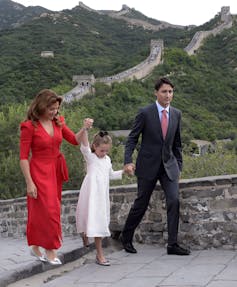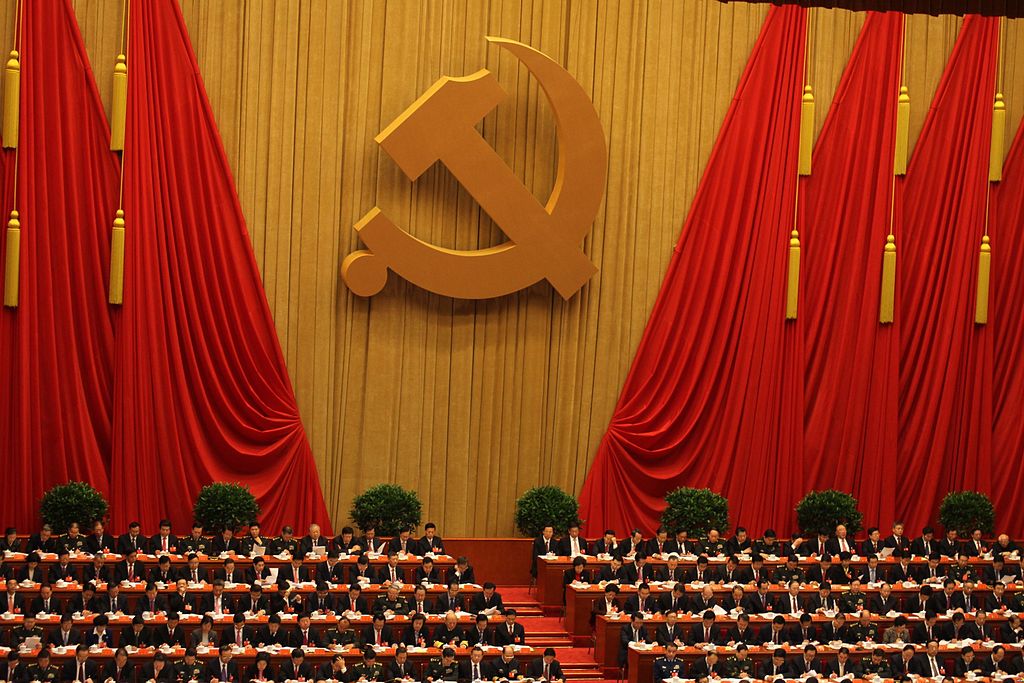Since the Asian Infrastructure Investment Bank tweeted last week that Canada is now officially a full member, it hasn’t exactly made headlines.
Yet this is ostensibly a prelude for trade talks with China in an increasingly protectionist global landscape. And admission wasn’t cheap: Chinese sources say Ottawa committed more than a billion dollars to the Beijing-based bank.
But China-watchers are more fixated on the dramatic changes rolling out after the just-completed National People’s Congress.
Among other moves, the annual Congress voted 2,970-to-0 to give President Xi Jinping a second five-year term and repealed a regulation barring him from seeking a third.
They also rubber-stamped the creation of a National Supervision Commission (NSC), empowered to detain people for months at secret locations without access to lawyers or due process.
This NSC ranks above even China’s judiciary in the newly amended Constitution. Its establishment would certainly make Chinese Congress members pause before entering a symbolic protest vote against Xi’s Machiavellian restructuring of institutions to consolidate his own power.
Xi calls all the shots
After last week, any charade that state institutions are somehow independent from China’s Communist Party (read: presidential) diktat is now abandoned. Whatever Xi says, goes.
He chairs six top-level “leading small groups” and numerous other committees and commissions, covering every major area of policy, and has taken direct command of China’s security and intelligence apparatus. (The “authority” of Chinese State Council Premier Li Keqiang is so debased that there is little point in our prime minister meeting with him again.)
Xi’s closing address to Congress, intended to be heard around the world, was a rousing paean to the greatness of China’s civilization across its dynastic history.
The inventions of paper and printing, dynamite and the compass were cited, as were China’s contributions to literature and philosophy and the construction of the Great Wall. It all underscored the point that Xi will oversee the “great restoration of the Chinese nation” by 2050. The characters wei da — meaning “great” — were heard 35 times in the 38-minute speech.

Prime Minister Justin Trudeau, his wife Sophie Gregoire and daughter Ella-Grace walk along a section of the Great Wall of China, in Beijing in September 2016. THE CANADIAN PRESS/Adrian Wyld
Where does Canada’s massive financial contribution to the AIIB fit in? It’s in Xi’s promise that “China will continue to actively engage in reconstruction and transformation of the systems of global governance by contributing more Chinese wisdom, Chinese redesigns and Chinese strength.”
This is part and parcel of Beijing’s massive One Belt One Road global infrastructure program, which China expects will lead to its development of the Canadian North and polar waters in years ahead.
China has already declared itself a “near-Arctic nation,” regardless of the strictures of geography.
Most alarming for Canada was the news that the Communist Party’s United Front Work Department, responsible for promoting China’s influence around the world, will be restructured and beefed up. Xi characterizes the UFD as the Party’s “magic weapon,” and indeed, its activity in Western countries has increasingly been seen as a covert, coercive or corrupt tool for China’s foreign interests.
China’s 2015 hack of the U.S. government’s Office of Personnel Management — exposing personal data of 21 million government employees or their spouses to China’s sophisticated super-computers — was likely a glimpse of a Chinese social engineering behemoth intended to induce naïve Canadians to take actions that serve Beijing’s purposes more than Canada’s own sovereign interests.
‘Useful idiots’
It uses up-to-the-minute cyber-technology to cultivate the equivalent of Lenin’s “useful idiots” in nations of strategic interest to China — nations like Canada.
Beneath all the win-win rhetoric, and sops to Canadian greed, the real goal is buttressing the rise to power of a new global order, where liberal democratic principles are eclipsed by Xi Jinping’s determined, authoritarian passion to restore China’s lost greatness.
According to diplomatic lists maintained by Global Affairs Canada, the United States has 138 accredited foreign representatives at its embassy and consulates in Canada.
But China has 169.
As a onetime official in the Canadian embassy in Beijing, this begs some questions. Why does China need so many more people stationed in Canada than our much more predominant economic partner and closest ally?
And what are the Chinese diplomats doing here that the American diplomats aren’t?
 Charles Burton does not work for, consult, own shares in or receive funding from any company or organization that would benefit from this article, and has disclosed no relevant affiliations beyond their academic appointment.
Charles Burton does not work for, consult, own shares in or receive funding from any company or organization that would benefit from this article, and has disclosed no relevant affiliations beyond their academic appointment.



 Elon Musk’s Empire: SpaceX, Tesla, and xAI Merger Talks Spark Investor Debate
Elon Musk’s Empire: SpaceX, Tesla, and xAI Merger Talks Spark Investor Debate  BTC Flat at $89,300 Despite $1.02B ETF Exodus — Buy the Dip Toward $107K?
BTC Flat at $89,300 Despite $1.02B ETF Exodus — Buy the Dip Toward $107K? 
































